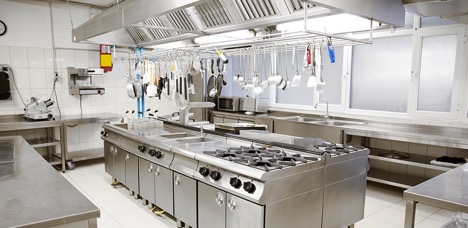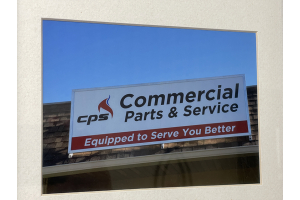Basic Elements of Commercial Kitchen Design

If you want your commercial kitchen to run smoothly, design it well. The essential task of all commercial kitchen designers is to determine what you need and what you don’t. This can be difficult because it can be tempting to either skimp and save in every aspect of your design or to spend lavishly on the best, shiniest equipment you can find. The key to commercial kitchen design is to find a balance between these two extremes. Essentially, your kitchen should be equipped with stellar basic supplies, but not with useless flashy gadgets. Below are a few of the basic supplies every commercial kitchen needs.
- A walk-in refrigerator and freezer
All commercial kitchens need enough space to store their ingredients that must be frozen or refrigerated. These walk-ins must be carefully maintained to keep their temperatures at food-safe levels. Our experts at CPS can inspect your walk-ins and keep them in working order.
- An oven
Just about every kitchen requires an oven. Carefully consider how much space you need in the oven before buying it. It’s better to err on the side of too much space rather than too little, but don’t overdo it. In addition to an oven, every commercial kitchen will have different cooking appliance needs. If you fry food, you’ll need a fryer. If you bake bread, you’ll need a place to do so. Once you’ve decided what appliances you need, buy the best quality you can afford. These items will be used mercilessly and you’ll want them to last. Our experts at CPS can help to keep your cooking appliances running properly and to prevent a costly replacement. - Pots, pans, spoons, etc
Every commercial kitchen requires basic supplies such as pots, pans, knives, stirring spoons, etc. The list is long and every kitchen’s precise needs will vary, but the basic lesson when it comes to these supplies is to buy for quality, but not for appearance. In addition to being necessary to the running of a kitchen, investing in these supplies can help to prevent turnover in the kitchen. If you ask a busy chef to work with dull knives or hot pads that don’t really prevent burns, prepare yourself for frequent turnover. Instead, give your chefs the supplies they need to do their jobs well and everyone will be happier. -
Of course, designing a kitchen requires more than just buying the right supplies and appliances. If must be carefully planned to allow for ease of movement and a sensible flow of service. This means you should design your kitchen so that finished plates will be as close to the door to the dining room as possible while prep work is done in the back of the kitchen. In addition, you’ll need to set aside space for storage. You always have more goods to store than you expect, so make sure to reserve plenty of space for storage to prevent a cluttered, chaotic kitchen.
Once you’ve built the commercial kitchen of your dreams, give CPS a call and we’ll send our expert technicians to make sure all of your appliances are being properly maintained.




